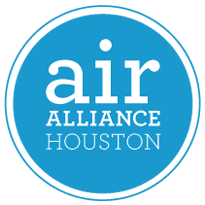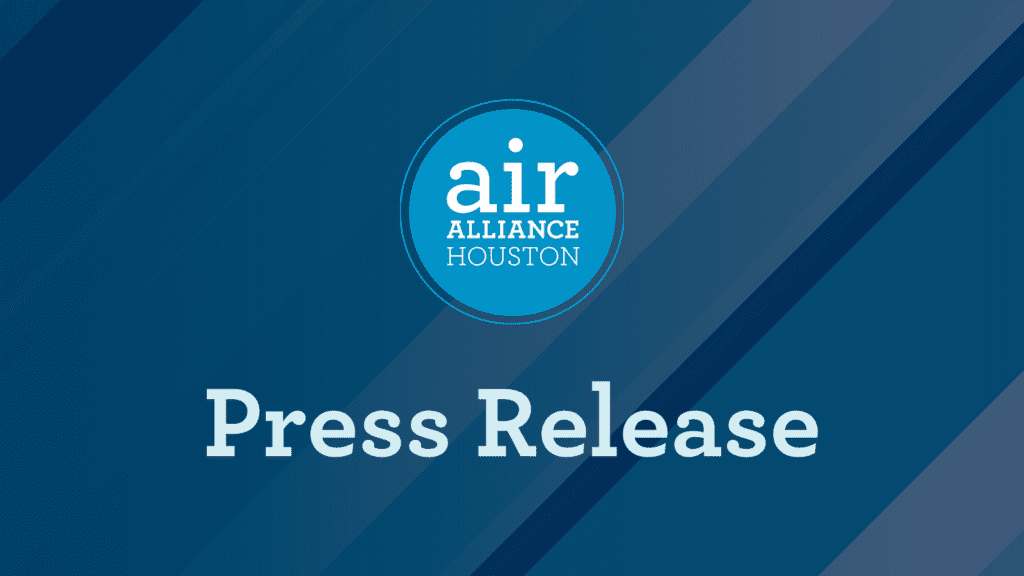Texas has Refused to Fix Problems in its Air Permitting Program that Affect Environmental Justice and Public Participation
Austin, Texas – Today, the Environmental Integrity Project and twelve other organizations petitioned the U.S. Environmental Protection Agency to take action in Texas, where the state’s air permitting program has for years failed to meet public participation and environmental justice obligations under federal environmental and civil rights laws. Until EPA addresses the deficiencies identified in the petition, the Texas Commission on Environmental Quality (TCEQ) will continue its discriminatory practices that ignore input from the communities most harmed by air pollution and neglect to evaluate environmental justice impacts in permitting decisions.
EPA’s involvement is necessary to correct TCEQ’s systemic refusal to conduct any environmental justice review in its air permitting program and to ensure TCEQ is complying with Title VI of the Civil Right Act. The petition filed today urges EPA to initiate a Title VI compliance review and a SIP (State Implementation Plan) Call to review TCEQ’s lack of environmental justice review and unlawful barriers to public participation in the Texas air permitting program.
TCEQ has consistently refused to conduct environmental justice analyses in relation to air pollution permits, even as frontline communities across the state have repeatedly asked for them. In recent filings with EPA, TCEQ stated that “environmental justice reviews are too burdensome to conduct…” and that environmental justice impacts of individual permits are “not relevant to the issuance of [a] permit.”
“Historically in Texas and in West Dallas, industrial pollution mostly exists in black and brown and low-income neighborhoods,” said Raul Reyes, president of a Dallas community organization called West Dallas 1. “It’s not appropriate for our community, and it seems like the burden is always on the community to prove it’s not safe for us. It’s time TCEQ protected our communities and not the polluters.”
“Approving permits for polluters with complete disregard to where their fencelines are located, which is consistently and purposefully done in communities of color, is the very definition of environmental racism,” said Jennifer Hadayia, Executive Director of Air Alliance Houston. “Until the EPA requires Texas to comply with federal civil rights laws, TCEQ has made it perfectly clear that they will do nothing to stop this trend, and Houston’s Black and Brown communities will continue to be disenfranchised from the equal protections promised to them by law.”
“Fenceline communities have suffered over many years from the cumulative impacts of toxic pollution released by large plants and clusters that are common in the Houston Ship Channel’s communities,” stated Bryan Parras of the Sierra Club. “The TCEQ has historically failed to protect fenceline communities from cumulative toxic exposures because the agency has refused to conduct cumulative analyses in the highest exposed areas in Houston and other communities.”
The petition identifies three significant barriers to public participation in TCEQ’s air permit proceedings that are unlawful under the Clean Air Act: (1) limiting access to judicial review of permits, (2) allowing public information to be withheld from the public, and (3) allowing operators to use unenforceable permits to authorize new construction, modifications, and emissions increases without any meaningful opportunity for public participation.
Under Texas law, only “affected persons” may participate in Texas’ contested case hearings, a critical step in judicial review of air permits. However, TCEQ arbitrarily presumes that people who live more than one mile from a facility seeking an air permit are not affected persons even though air pollution is not contained to this short boundary. For example, TCEQ recently ruled that Petitioner groups San Antonio Bay Estuarine Waterkeeper and Texas Campaign for the Environment were not “affected persons” for contesting an air permit for an oil export terminal expansion near Port Lavaca, Texas even though the groups had members who fish commercially and recreationally near the terminal, regularly monitor for pollution nearby, have respiratory health problems, and live under two miles from the terminal.
TCEQ also denies access to important public information by allowing industry to designate many documents as “confidential,” even though they contain critical facts about pollution releases.
“Under the current framework, even when the agency agrees with the requestor regarding the confidentiality designation, it can still take many months to obtain documents that are ultimately agreed to be nonconfidential and relevant to permitting decisions because the applicant has made improperly broad designations,” explained Amy Dinn of Lone Star Legal Aid.
“Texas’s widely-used Permit by Rule program allows the largest polluters in the state to emit more and more pollution without demonstrating the increases are safe and without input from communities directly harmed by this pollution,” explained Gabriel Clark-Leach, senior attorney at the Environmental Integrity Project. “EPA has repeatedly objected to these permits without actually requiring Texas to fix its broken process. That needs to change.”
“Despite clear legal requirements to weigh pollution burdens and include public input in its decision-making, TCEQ keeps approving project after project that poses major threats to communities, public health, and the environment. TCEQ must abide by federal civil rights and environmental laws and stop playing this dangerous game with Texan’s health,” said Erin Gaines, senior attorney at Earthjustice.
View the petition here.
Download media images here.
Petitioners include: Port Arthur Community Action Network, San Antonio Bay Estuarine Waterkeeper, Diane Wilson, Familias Unidas del Chamizal, Shrimpers and Fishermen of the RGV, Citizens Alliance for Fairness and Progress, West Dallas 1, t.e.j.a.s., Air Alliance Houston, Texas Campaign for the Environment, Environmental Integrity Project, Sierra Club Lone Star Chapter, and Sierra Club.
_____
The Environmental Integrity Project is a 20-year-old nonprofit organization, based in Washington D.C., dedicated to enforcing environmental laws and strengthening policies to protect public health and the environment.
Port Arthur Community Action Network is a nonprofit corporation advocating for environmental justice in Port Arthur, Texas.
San Antonio Bay Estuarine Waterkeeper is a volunteer-run, local affiliate of the national Waterkeeper Alliance whose mission is to protect Lavaca, Matagorda and San Antonio Bays and to educate the public about these ecologically important ecosystems. Diane Wilson is the Executive Director of Waterkeeper and a fourth-generation fisherwoman and shrimper who works to protect the environmental quality of the estuarine resources in Calhoun County.
Familias Unidas del Chamizal is a community organization from the Chamizal neighborhood of El Paso that works to protect the health and safety of households in the neighborhood.
Shrimpers and Fishermen of the RGV is a membership organization of individuals who live, work, and recreate around the Brownsville Ship Channel in Cameron County, which is part of the Rio Grande Valley (“RGV”) along the Texas-Mexico border.
Citizens Alliance for Fairness and Progress is a community advocacy group of residents from the Hillcrest and Washington-Coles neighborhoods along Refinery Row in Corpus Christi, Texas founded out of concern for the deteriorating conditions in the neighborhoods as a result of heavy industry.
West Dallas 1 is an unincorporated Texas Nonprofit Association organized for the purpose of empowering neighborhood associations, leaders and residents to unite and advocate on several issues including, but not limited to, issues impacting their membership’s health, safety, and welfare.
Texas Environmental Justice Advocacy Services (t.e.j.a.s.) is a non-profit organization whose goal is to promote environmental protection through education, policy development, community awareness, and legal action. T.e.j.a.s.’s guiding principle is that everyone, regardless of race or income, is entitled to live in a clean environment.
Air Alliance Houston is a non-profit advocacy organization working to reduce the public health impacts from air pollution and advance environmental justice
Texas Campaign for the Environment is a membership organization dedicated to informing and mobilizing Texans to protect their health, their communities, and the environment. TCE works to promote strict enforcement of anti-pollution laws designed to stop or clean up air, water, and waste pollution.
Sierra Club is the nation’s largest grassroots environmental organization, with millions of members and supporters. In addition to protecting every person’s right to get outdoors and access the healing power of nature, the Sierra Club works to promote clean energy, safeguard the health of our communities, protect wildlife, and preserve our remaining wild places through grassroots activism, public education, lobbying, and legal action. Sierra Club Lone Star Chapter is the oldest grassroots environmental organization in Texas and has over 20,000 members.
Media Contacts:
Tom Pelton, Environmental Integrity Project (443) 510-2574 or [email protected]
Alexandria Trimble, Earthjustice, (202) 792-6889, [email protected]
Riikka Pohjankoski, Air Alliance Houston, (713) 589-7079 or [email protected]

